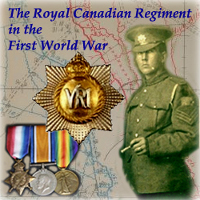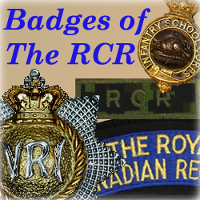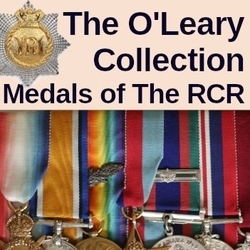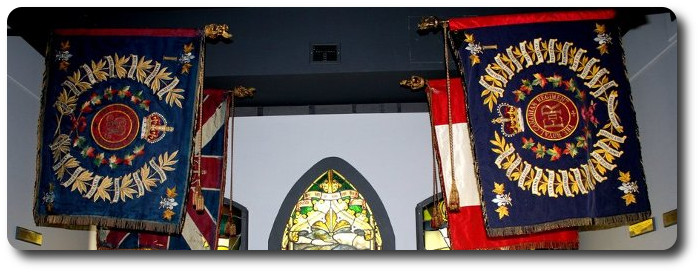
Researching The Royal Canadian Regiment
Even Trade: One Wounded Canadian for One Wounded German
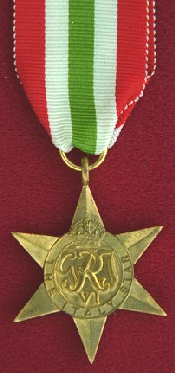
The Italy Star was awarded for one day operational service in Sicily or Italy between 11 June 1943 and 08 May 1945.
By Lorne Manchester
Extract from Legion Magazine; as published in Pro Patria #35; February 1978
They were known as Beany and Bailey, the inseparable stretcher-bearers of the Royal Canadian Regiment, during the Italian campaign. Their story will not be found in the history books, but it should be recorded because it illustrates once again that men at war do not hate each other: they react as human beings when even one life is at stake.
Beany is Roy Bean, 52, of Listowel, Ontario, and Bailey is Milton E. "Mickey" Bailey, now 57, of Sarnia, Ontario. They met in Italy last April and had tile unexpected experience of standing on the same ground they fought over more than 30 years ago and recalling a hair-raising episode when they exchanged a wounded Canadian for a wounded German.
The Canadians were driving the Germans up the Italian boot. It was December, 1944, and every river and stream emptying into the Adriatic, swollen into torrents, was a major obstacle to overcome.
The RCR had crossed the Lamone River with heavy casualties, having been infiltrated on their left by German troops using a concealed railroad bridge for cover. A regimental aid post had been established in the Palazzo San Giacoma, a palatial house on the east bank, under continuous enemy shelling. The RCH had crossed the Fosso Vecchio, west of the Larnone, in a night attack hut had been forced back across that river by determined enemy resistance.
Beany and Bailey went up the line the next morning to look for men. Their stretcher-equipped jeep, marked with a huge Red Cross banner, was their protection. They saw and talked to the Germans, dug in on the opposite bank of the Fosso Vechio, and learned that a badly wounded Canadian soldier was lying across the river in a small house. While Bailey, the driver, stayed in the jeep, Beany got a boat and crossed over under the watchful eyes of the Germans. He found Rufus Fulford, a member of his unit, who had been hit in the leg by shrapnel. Beany fixed him up and prepared to take him back, hut the Germans said, "no." After a parley, Beany was escorted about a quarter of a mile behind enemy lines to get permission from a German colonel. In flawless English the German officer said he would make a deal - a German wounded prisoner for a Canadian.
"They took my picture while I stood there talking with the German colonel. When the man put a black hood over his head and got down behind this thing on a tripod I was scared. I thought I was going to get shot, I, said Beany. Rut they let him go back, accompanied by a German stretcher-bearer, to find a wounded German prisoner.
They found one in the RAP. Although he didn't want to go back he didn't have much say in the matter. When he was taken to the German lines, the colonel produced some wine, the deal was consummated, and Beany was given a bottle of wine for the M.O. of the RCR unit.
Both Beany and Bailey, after performing their life-saving activities intrepidly and conscientiously, escaped the war unscathed and both were "Mentioned in Despatches."
Beany was a member of the official VA-sponsored war veterans' pilgrimage to Italy and Bailey arrived with a commercially-sponsored group out of Toronto.
With the help of Colonel Strome Galloway, press liaison officer with the OVA pilgrimage, they were able to get together on the banks of the Lamone River by the ruined Palazzo San Giacoma, to re-live those hours of 30 years ago when their lives were in jeorardy and life was cheap. They plan to keep in touch from now on.
